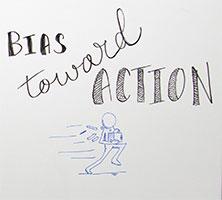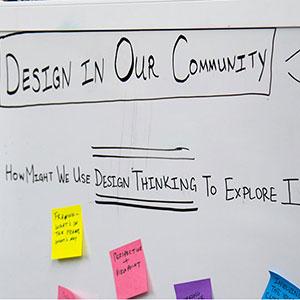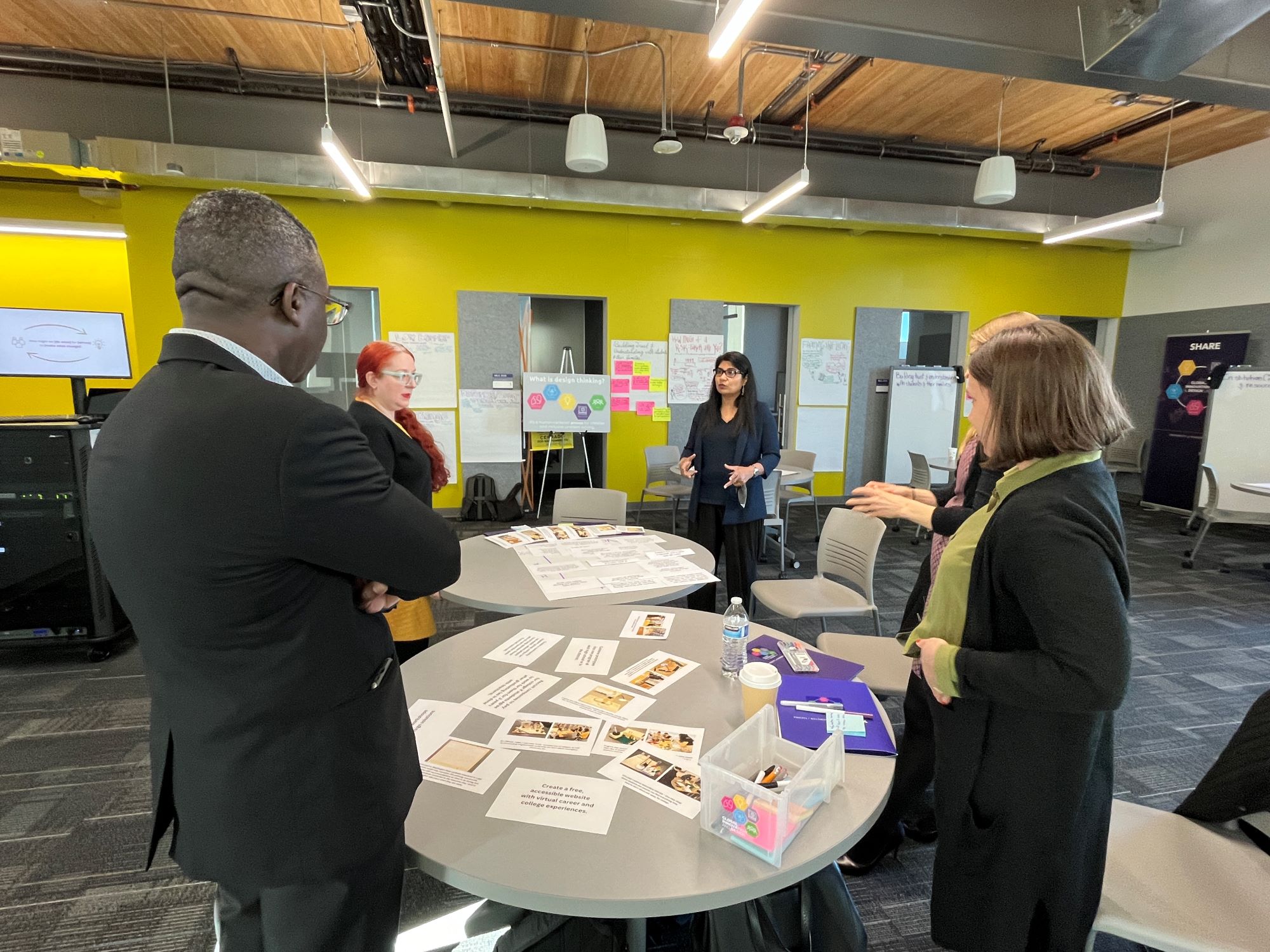
State Funding Agency prototypes 3D Pilot in GID Lab
Reducing barriers to education after high school is the core mission of the Washington Student Achievement Council (WSAC). A client of the Global Innovation and Design (GID) Lab since early 2022, the WSAC's mission took on a new urgency with reports of declining FAFSA applications especially among rural and underrepresented high school student populations.
How might we create infrastructure that is culturally and geographically responsive in this new era of state and federal policy changes so that we can better support learners in their post high school plans, in the communities where they live? was the March 1, 2024 design challenge for Deputy Executive Director Issac Kwakye, Director of College Access Initiatives Sarah Weiss, Associate Director Associate Director of College Access Initiatives Christina Winstead, Associate Director of Research & Program Evaluation KC Dean, and Associate Director of Research Emma Lacalli. All were participants in the fifth sprint with the GID Lab, the first three of which were among communities across Washington state and the fourth with a WSAC executive team.
The goal of the final sprint, Kwakye said, was to "help us take the work of the previous year and work our way to actionable items and a timeline."
The ambitious project began with an invitation from WSAC Executive Director Michael Meotti to Dr. Divya McMillin, lead facilitator and head of the GID Lab, in February 2022, to use human centered design to understand the barriers students from rural and underrepresented communities faced in accessing resources to continue education beyond high school. McMillin created a framework that integrated the principles of design justice, methodologies of participatory design, and the process of design thinking, and recruited UW Tacoma staff, faculty, and students to execute three sprints in Quincy, Oakville, and Highline, and a fourth for the WSAC team in the GID Lab.
User research commenced in October 2022 with surveys to Washington state high schools, college support organizations, and WSAC employees, and concluded with interviews of high school students. The design sprints ran from April-June 2023, and included WSAC staff members. They resulted in a total of 84 ideations, nine prototypes, and 18 recommendations from high school students and parents. The prototypes emphasized, among other things, building trust through personal connections with families beyond just imparting information to students, demonstrating the value of a college education for family and home community, creating multiple pathways to success beyond high school outside of college, and creating quick start FAFSA and scholarship guides for parents as well as students.
The fourth sprint in June 2023 with the WSAC team moved the prototypes and recommendations into the beginnings of a framework for a workplan. Four prototypes emerged from this round which included new programs of support for students and families, human centered engagements with communities to co-design outreach, and a new communication plan.
Reflecting on the hefty work at the March 1 final workshop, Emma Lacalli said, "There is a lot of responsibility put on students and their families to make big life decisions with sometimes little resources. That is a lot to ask, especially for first-generation students. We need to do a better job getting them information."
For the fifth sprint, WSAC participants prioritized and mapped previous work, refined the design challenge to move them into a workplan, tested a draft plan through empathy interviews with colleagues, and created a 3D [District Deep Dive] Pilot in their final workshop. The 3D Pilot would center a "trusted messenger" program, work more closely with local community organizations, schools, and families, and co-create pathways to utilize financial aid and other resources to continue education beyond high school. With a three-phase plan to iterate and test in the coming months, the WSAC team anticipates rollout in Spring 2025.
“I am excited to move what we heard from students, parents and communities forward. Diving deep with a district to test our approaches and ensure they meet community needs is a great step in doing just that,” said Sarah Weiss.
Assisting the GID Lab with phases of user research and design sprints were Jessika Gill, GID Lab Design Assistant; Janeil Engelstad, GID Lab Program Operations Specialist; Kate Nikolaeva, IIGE Managing Director; Amanda Figueroa, Associate Vice Chancellor for Social Mobility; Dr. Jeremy Davis, IIGE Executive Director; and GID Lab interns: Cecil Susi, Suweyda Abdi, Jannat Musawi, Anuvir Dhaliwal, Mak Pennington, and Isabelle del Castillo.
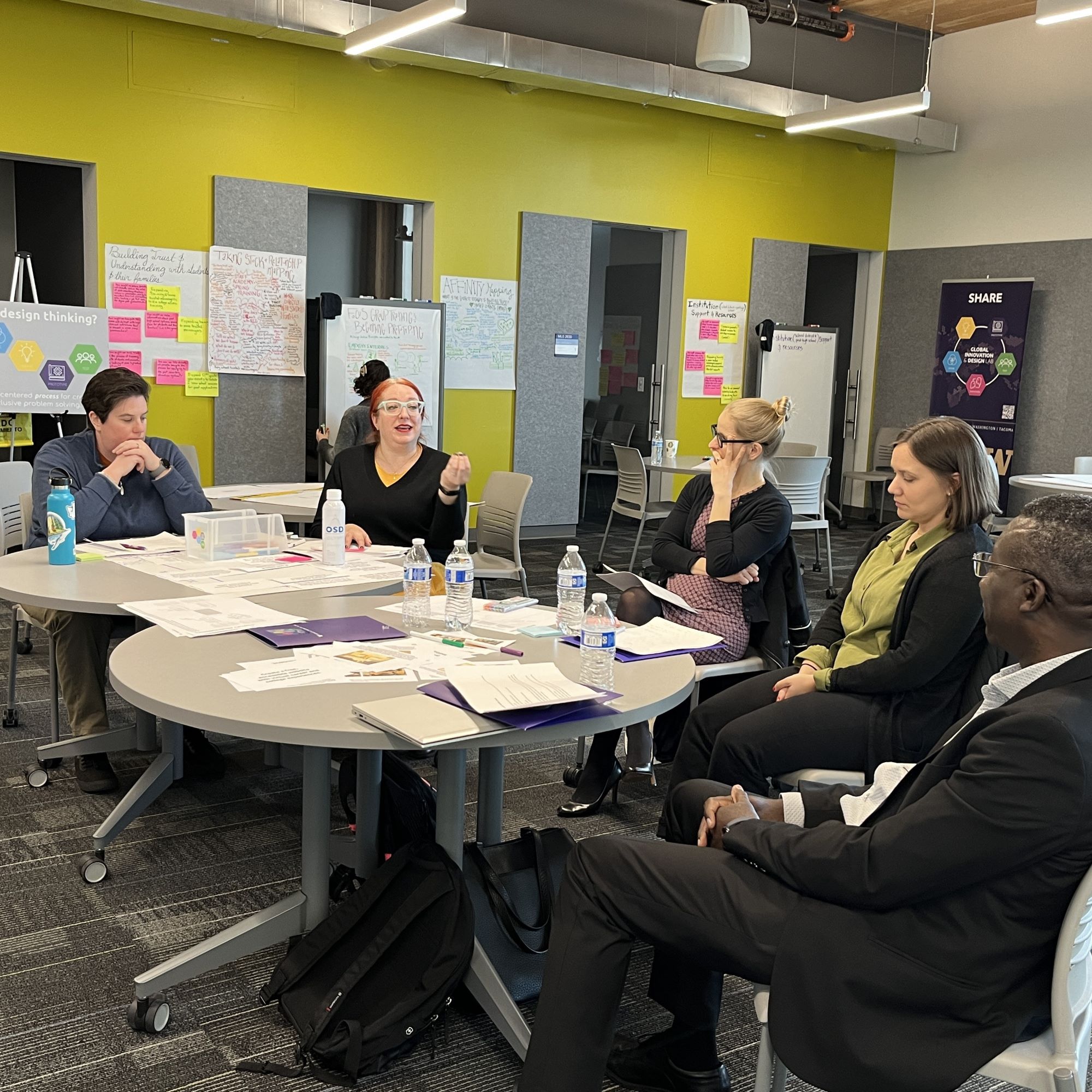
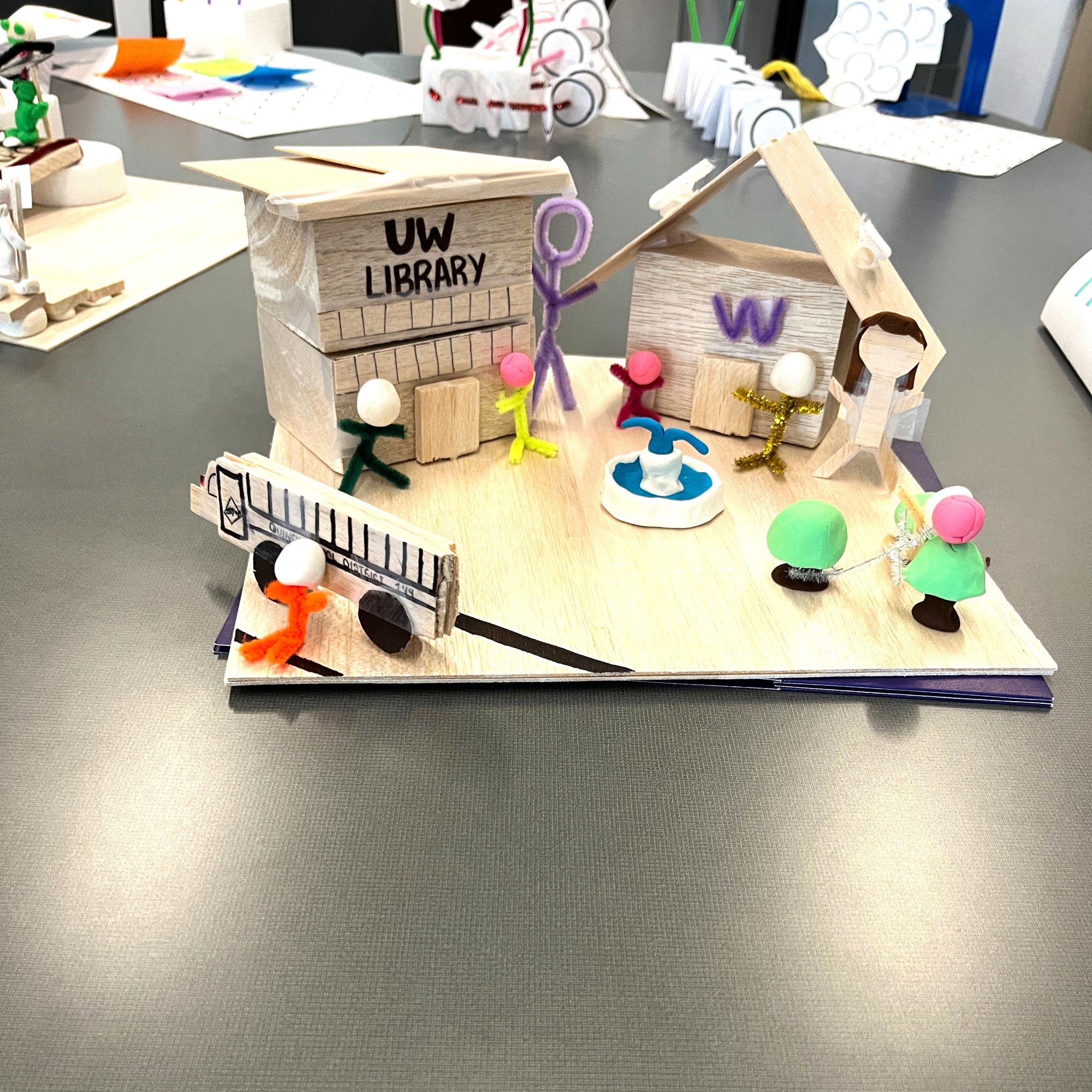
Knowledge is Power
Washington historically ranks at the lower end for FAFSA completion rates. The Washington Student Achievement Council has engaged UW Tacoma's Global Innovation and Design Lab in its Knowledge is Power project to expand access to postsecondary opportunities.
Main Content
Empathy can Change the World
With accessible, everyday items like sticky notes and pipe cleaners, UW Tacoma’s Global Innovation & Design Lab brings together people of all backgrounds to solve difficult challenges, using design thinking.
Main Content
The Global Innovation and Design Lab: A Hub for Problem Solving
Using design thinking -- founded on ideation, prototyping and testing -- a new program will leverage campus and community resources for local and global solutions.
